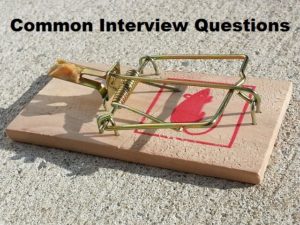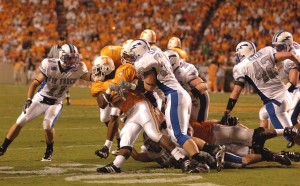
You aren’t a beggar in a job interview.
Do you hate to be asked about money in an interview? Are you afraid it will go something like this:
“I really like your background. I think you would do well. How much less than $55,000 will you take as a base salary?”
You probably won’t be asked that particular question. It is brutally bad. But it does happen.
Employers hate to ask any money question. It isn’t polite. But, you and the employer need to be in the same salary ballpark. Wouldn’t you feel upset if after 3 interviews over a period of a month you were offered a salary of half of what you are willing to take?
What makes the money question worse is that you cannot give a solid answer and win. If you give a number too high, they may refuse to continue the interviews. If you give a number too low, they’ll pay that low number and not a higher one you could have gotten.
There is only one way to answer the question.
- Compliment — Start out with a compliment.
- My now — Let them know what you earn now or in your last job.
- Best offer — tell them you want to hear their best offer.
Here’s an example:
“How much do we have to pay you?”
“(Compliment) I like this company. The opportunity is just what I am looking forward to. The team is a real winner too.
(My now) I currently earn a $63,000 base plus a bonus of $2500 last year. I certainly wouldn’t want to earn less.
(Best offer) What I would like is to be able to entertain your best offer.”
This answer gives them information to work with. It is not a refusal. The heartfelt compliments at the start make them feel good. You tell them what your baseline for comparison is. Finally you give them a chance to be generous.
Can I bring up money?
Don’t bring up money in any interview, ever, unless you get a feeling they are going to be way too low. Even then, use the 3 step formula. You can discuss your expectations with an outside recruiter/headhunter any time, but not with the company’s internal HR recruiter or a company interviewer until they bring it up.
If you have questions about benefits, vacations, the 401K program, relocation payments, or other benefits you can ask the internal HR recruiter when you are interviewing face-to-face with HR. You can ask the external recruiter/headhunter any time.
So, what do I do?
Wait for them to mention money, then 1. Compliment them, 2. Tell them your “now”, 3. Ask for their best offer.
Never, ever suggest they don’t have to pay you. What they pay for, they’ll value. What they get for free, they’ll take for granted, and then demand as a right. Hold them up for all the market will bear. (Lois Bujold)
Something To Do Today
Most people cannot clearly state what they earn. I don’t know why. Before you go on an interview write down the clearest, shortest way you can state your current earnings. Then practice answering “the money question”.
————————–
Next: Why are you leaving your job?
Later: Will you do anything we ask?
Where else are you interviewing?
Why don’t they give you an answer, Yes or No?






 Perfect candidates blow interviews like this every day.
Perfect candidates blow interviews like this every day.

